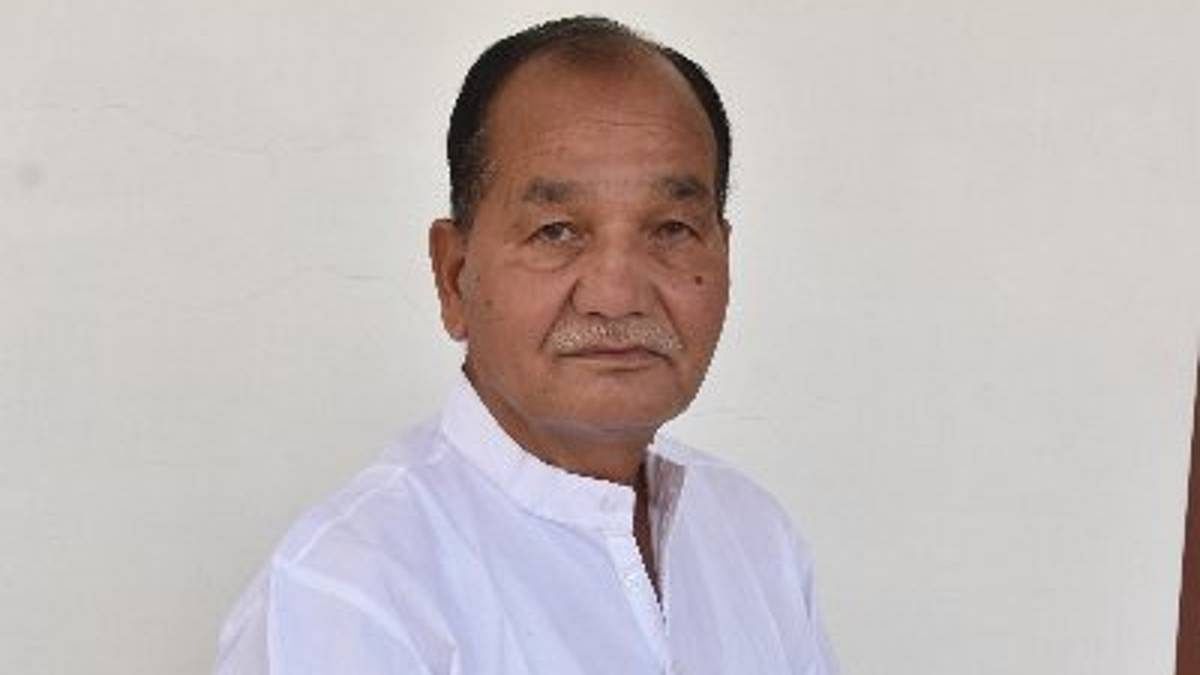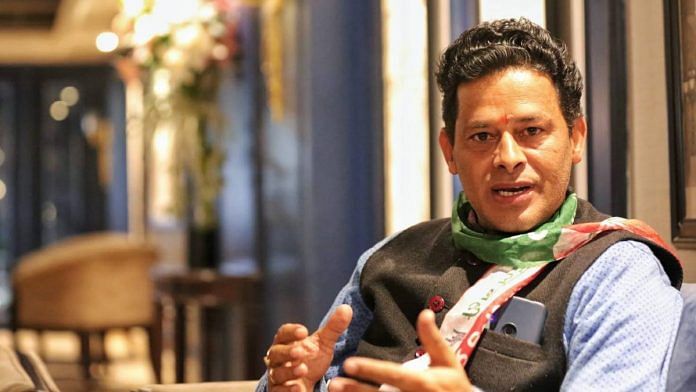Dehradun: Since the state of Uttarakhand was carved out of Uttar Pradesh in 2000, the Congress and the Bharatiya Janata Party (BJP) has alternately formed government here. However, the election on 14 February will see not just the Congress and the BJP compete for votes, but also the Aam Aadmi Party and the Uttarakhand Kranti Dal (UKD), the state’s oldest regional party, vie for power.
The UKD has been especially hoping to revive its fortunes in the state.
Three new states — Uttarakhand, Chhattisgarh and Jharkhand — were formed in 2000. In Jharkhand, the regional party Jharkhand Mukti Morcha (JMM,) has been established as a strong political force from the beginning. However, regional parties in Chhattisgarh and Uttarakhand have not had much political impact in the past.
This year, however, the UKD has fielded candidates in 49 of 70 assembly constituencies and has also extended support to candidates in two assembly seats. The party that had spearheaded the struggle for the formation of a separate hill state, is now hoping for a political revival.
ThePrint spoke to Kashi Singh Airy, who is the current president of the party. The party was founded in Mussoorie on 25 July 1979, with D.D. Pant, the then vice-chancellor of Kumaun University, as its first president. The aim of the party had been to initiate a movement for the formation of a separate hill state, said Airy. Under his leadership, the party took up the statehood movement, recalled the leader, who is not contesting the Uttarakhand elections for the first time this year.
Airy said the party had played a crucial role in the formation of the state and had they not initiated it this would have remained a distant dream. But he agrees that since their movement was more focused on the creation of a separate state, they did not think too much about the electoral politics and had even boycotted the 1996 UP elections (the last assembly elections in UP before the formation of Uttarakhand).

“We are quite confident of doing well in these elections as people in Uttarakhand have realised that these national parties are not concerned about their interests,” Airy told ThePrint.
He added: “The party collectively decided that I should not contest the elections as it would give me an opportunity to tour the constituencies and not get restricted to my own constituency. At the same time I also did not have the kind of funds that are used in elections now.”
“I have been touring the state and people are willing to give us a chance as they have realised that despite over 20 years of the state being formed, the condition (of the state and the people) has not changed. We were not able to win in the last few elections as the party was not united and hence it affected our campaigning. We are all together now and are quite confident. We have been raising local issues which are important for the people of Uttarakhand — whether it is migration (from hill areas), or road connectivity, among others,” he said.
‘Decision to boycott 1996 elections a mistake’
According to sources, while in most of the hill areas the election is largely between the Congress and the BJP, in the Devprayag and Dwarahat area, as well as a few other places, UKD is putting up a fight.
The UKD national spokesperson, Vijay Kumar Bauri, told ThePrint that the party’s decision to boycott the 1996 elections proved crucial for the formation of the state, but hurt them politically, a decision that they term a big mistake.
“The UKD took a bold decision that it would contest the polls only when its demand for statehood for Uttarakhand is met. In hindsight, we can term it as a major mistake. We should have contested the polls as it would have made us strong politically. But if we have Uttarakhand today it is because of the efforts of UKD,” Bauri said.
“A lot of our passionate and hardworking party workers then (in 1996) decided to join the BJP and the Congress,” he added.
The party leaders claim that the entry of AAP in Uttarakhand politics has only strengthened them. UKD on its own has never come close to getting a majority and in the last assembly polls in 2017, the UKD failed to win even one seat. In 2007, when the BJP won 34 seats, two UKD MLAs and one independent MLA had extended their support to them. Similarly, in 2012, when the Congress was short of a majority, UKD MLAs had supported them too.
The vote share of the party has, however, been on a constant decline — from 5.49 per cent in 2002 and 2007, to 1.93 per cent in 2012 and 0.7 per cent in 2017. This time, however, Bauri said they are quite confident of doing well and make a place for themselves in the Uttarakhand assembly.
“People are tired of national parties. The entry of AAP has also shown the people why they should not allow another Delhi party in Uttarakhand. We are the only regional party in Uttarakhand and we understand the concerns of the state. AAP’s entry has helped in initiating the discussion on reposing faith in regional parties and not outsiders,” he added.
Airy also said that lately there has been an increase in regional sentiments in Uttarakhand just like in the rest of the country, which will help them in the elections.
When asked about UKD’s failure to emerge as a force to reckon with in the two decades that followed the creation of Uttarakhand, Airy acknowledged that some political decisions went against the party.
“There was factionalism, which we have now addressed. At the same time due to lack of proper resources, we found it difficult to sustain ourselves. This also allowed BJP to grow stronger. But all this will change now,” he says.
(Edited by Poulomi Banerjee)
Also read: Forget drugs & potholes, Dharma Sansad-host Haridwar’s seers say ‘Muslim appeasement’ poll issue



